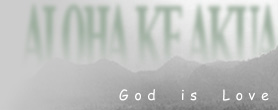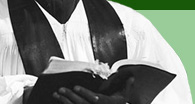

 |
 |
 |
|||
|
|||
|
The Reverend Abraham Akaka
One of eight children who each morning prayed, sang hymns and listened to their father, a poor ironworker, recite Bible passages, Akaka continued the tradition with a flourish at Kawaiaha'o, frequently playing the 'ukulele to augment his sermons. He was appointed the first chairman of the Hawaii Advisory Committee of the U.S. Civil Rights Commission, and joined the Rev. Martin Luther King Jr. during King's famous march on Washington in 1963. Once described as "the most influential and widely known Hawaiian since King Kamehameha the Great," he had, according to Newsweek magazine, "the charm of a beachboy and the force of Billy Graham." After he went out of his way to show a Waikiki tourist how to surf one time, the visitor offered a gratuity. Akaka simply shook the man's hand and said it had been his pleasure. The startled tourist wondered why a "beachboy" would do such a thing. "Abe's no beachboy," remarked a local surfer with a laugh. "He's the best-loved minister in Hawai'i." Yet Akaka was never shy about using the pulpit to express a controversial viewpoint. He criticized the governor, led protest marches and at times raised the ire of his fellow religious leaders. Even in his later years, long after he had retired and supposedly mellowed, Akaka could be surprising. In 1993, during the fight to win an official U.S. apology for the 1893 overthrow of the Hawaiian monarchy, Akaka's brother, U.S. Sen. Daniel Akaka, noted that the United Church of Christ had apologized. Now it's time for the U.S. government to follow suit, concluded the senator. Abe Akaka demurred. "All the great things that Hawai'i has become had their foundation in the coming of the missionaries," he said. |